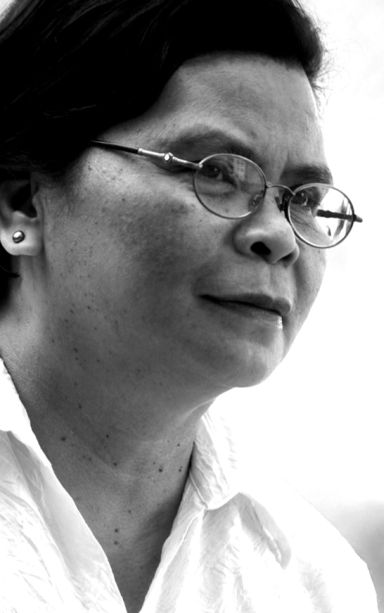
DELA CERNA
When I was in high school at St. Catherine’s School, my elder sister Mila who was then a Bachelor in Science Education (BSE) student at St. Theresa’s College Cebu would tell stories about STC, her teachers both the nuns and the lay teachers and her classmates that I practically knew them before I met them. Two names that stood out in her stories which she excitedly narrated during her home visits were Sister Laurentina and Lourdes Reynes Quisumbing.
I never met Sister Laurentina, but then when I studied at St. Theresa’s College, I also enrolled in the BSE. I was in the classes of Dr. Lourdes Reynes Quisumbing for four years. First of all, at that time, she was the lone teacher of the BSE students. In fact, all my 36 units in education (from Education 1 to Education 12) were with LRQ as she was popularly called in addition to subjects like Rizal and Marriage and the Family. On top of these, she was also my teacher adviser as a major in history. So it was that everyday was an LRQ day for me.
It was in the education classes of LRQ that my skills in teaching were honed especially in methods of teaching and practice teaching which was in two phases, one for the major and another for the minor. Foreseeing the challenges ahead of us as teachers, our batch requested that we also practice teach in a class of boys since our practice teaching at STC was all confined to an all-girl class. We were granted our request when in our senior year we were assigned to teach catechism every week to a mixed class at the Sudlon Agricultural School where I had a class of very inquisitive male students whom I later learned were Protestants. This drove me to be more attentive in my Theology classes.
Another memorable moment was in our Methods of Teaching class when we tackled how to conduct a field trip. From the planning of the trip where objectives are clear and the destinations chosen are very relevant to the subject, the conduct of the trip must be organized and always with a Plan B, and post–field trip activity, the evaluation. I remember I chose to conduct a field trip for the Methods class to Sudlon Agricultural School where I realize that it pays to be familiar with the place and the people managing it. In all my years of teaching I always brought my classes to field trips and thank God they were all productive.
The practice teaching was the most challenging phase in our senior year with one month for the major and another month for the minor. I taught History to a grade 6 class and Composition to a second-year class. When the assignment came, I approached LRQ and requested that I be assigned in another class because my elder sister was teaching Literature in the same class and I was so afraid of being compared to her. LRQ’s answer sank deep in my mind when she said, “In life, there are things you don’t like to do but you have to do.” Her answer still rings clear today.
One of the greatest things that prepared me as a teacher was that I had a very good teacher in how to teach. This was very evident during the practice teaching sessions. LRQ was very attentive when observing our classes and she noted every detail she observed in our lesson plan. When she observed practice teaching classes, she did not go alone; sometimes she would bring the rest of the class. She made very constructive and inspiring annotations in our lesson plans. This was also when I realized later the importance of incidental teaching in class.
My experience with LRQ was enriched when I decided to major in history and she was not only one of my teachers but was also my thesis adviser. Our history classes were so animated (for in high school history was poorly taught). Our batch of history majors was the biggest so far (there were five of us) and she helped us avail of the sources at the library of the University of San Carlos where we gathered so much information for our theses. LRQ made a daring move when the oral defense of the history majors was made public through a public symposium at the STC auditorium called “Symposium on the Orient” which focused on Asia and this was the year 1967 a turbulent decade for Asia. Together with Fr. Theodore Van Zijl, MSC, she formed the panel and she invited schools and universities to attend and the STC auditorium was packed. That public exposure strengthened our resolve to teach and pursue history as an important discipline.
All my life I had been teaching and I am very thankful for having been exposed to teachers who teach students how to teach and why teach. I am also very glad to know later that LRQ studied in St. Catherine’s School in Carcar (this was before STC Cebu was established) and she even composed the school hymn when she was in high school there.
LRQ was the teacher of teachers and her students who turned out to be excellent teachers hold out their candles of gratitude to an unforgettable educator. May she rest in peace.